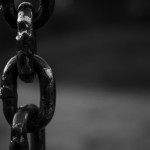
Cambridge and Oxford clash in culture row
In an ecclesiastical court battle to have a memorial to a donor linked to slavery removed, a Cambridge college dean has said chapels should be a "safe space" for students.
Jesus College, Cambridge, wants to remove a plaque to 17th-century royal courtier Tobias Rustat because of his links to the Royal African Company. For the first time, a university cancel culture row will be heard in court. Fellows applied to the Diocese of Ely to move it from the chapel to another part of the College, but after alumni and other academics opposed the move, the issue was brought before a consistory court for a judge to make the decision.
Rustat (1608-1694) was a courtier to Charles II and an investor in the Royal African Company and the Company of Royal Adventurers, both slaving enterprises. He commissioned the memorial himself when he was already a significant benefactor to the college, in 1671, Rustat donated £2,000 (about £450,000 in today's money) to Jesus College for the education of the orphan sons of Anglican clergy. Among his many other donations was a contribution to the reconstruction of St Paul's cathedral. Historic England has warned that removing the memorial would "harm the significance of Jesus College Chapel".
The argument has seen fellows at Cambridge pitted against their traditional rivals, academics from Oxford University. Prof Lawrence Goldman, a Jesus alumnus and an emeritus fellow in history at St Peter's College, Oxford, opposed Jesus's application.
The opponents argue that attempting to remove the memorial represents an oversimplification of difficult history and denies students the chance to think for themselves and have called Prof Nigel Biggar, a professor of moral and pastoral theology at Oxford, as a witness. Supporters of retaining the monument, including Dr Goldman, have argued that the totality of Rustat's life should be considered, not just his investments in slavery.
However, the college has taken the view that it represents a celebration of an individual which is "incompatible with the chapel as an inclusive community and a place of collective wellbeing". The hearing was told that the Rev James Crockford - the Chapel's Dean, who is responsible for the historic building - believes the memorial is a "barrier to [students'] participation in the chapel". He told the court that there were students who did not attend the chapel because they "find it distressing to enter" and others who attended, but "feel disquieted and discomfited by the presence of the memorial".
Being questioned, he was asked: "Do you think that church should always be a safe space?" He responded with an adamant "yes". Were the memorial not to be moved, the Rev Crockford said, some of these students would be a "lot less ready to participate in the life of the chapel". The college wants to place it on permanent display elsewhere in the college alongside "contextualising" material
However, the lawyer representing opponents to the memorial's removal, Justin Gau said: "We shouldn't remove the difficulties life throws at us in a chapel, should we?" Mr Gau also suggested that adding context to the memorial to Rustat would be enough to stop it being distressing to students, saying that for some "unchurched" undergraduates seeing images of Jesus "a crucified man, a dead man who had been tortured" might also be disturbing if they didn't have the well-known context of Christianity. Mr Gau even raised the role of slavery in the Bible saying "Where, for example, in the gospels is slavery condemned?" St Paul returned a "slave to his master", he said, asking: "What was he doing there?"
The hearing is taking place in the chapel itself, with representatives and witnesses regularly gesturing towards the memorial. Defenders of Rustat have insisted that only a small fraction of his wealth ever came from slavery.
Collings Solicitors
Altrincham
Altrincham Solicitors
From our Altrincham offices we provide a premium service that's the envy of our rivals.
We are a specialist law firm dealing in all matters property related.
Please call, email, or complete the enquiry form if you need assistance with a residential or commercial property matter.









